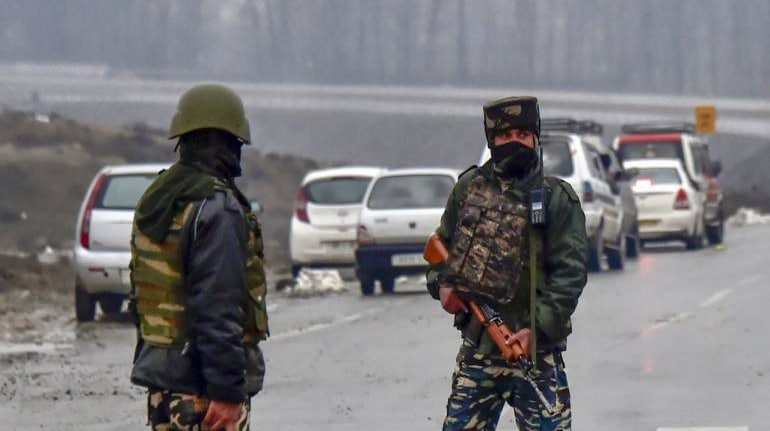



The United Nations Security Council (UNSC)’s special meeting of the Counter-Terrorism Committee (CTC) will take place in Mumbai and New Delhi on October 28-29. The focus will be on ‘Countering the use of new and emerging technologies for terrorist purposes’.
India currently holds the CTC chair, and has been highlighting its concerns in the evolving geopolitical setting characterised by the Taliban’s return to Afghanistan, al-Qaeda leader Ayman al-Zawahiri’s killing, the continued ‘virtual’ relevance of the Islamic State (IS), and China’s repeated stonewalling at the UN in designating key Pakistani terrorist operatives.
The CTC rarely holds meetings outside New York; therefore, its India meetings symbolise New Delhi’s contribution to counter-terrorism, and expanding global engagement.
The choice of Mumbai for the meeting is an important reminder of the city’s tryst with terrorist violence since the 1993 serial blasts. It culminated in the horrifying attacks of November 2008. The CTC meeting is taking place at the Taj Mahal Palace Hotel, which emerged as the site of a pitched battle between the security forces and the Lashkar-e-Toiba (LeT) terrorists during those attacks. Therefore, the meeting venue sends an unmistakable message that the UN stands with India in fighting the scourge of terrorism.
The meetings in India will tackle issues related to terrorist organisations’ use of technology. In recent years, besides exploiting cyberspace to push their extremist narratives, terrorist organisations have been prolifically using emerging technologies such as The Onion Router-enabled darknet, deep fake, and unmanned systems. For instance, in India, we have seen extensive use of drones by Pakistan-based terrorists to sneak in contraband for executing terrorist activities on Indian soil.
Countering this requires a collaborative approach, and the CTC’s efforts have focused on sensitising the member-states on emerging trends in this field, and sharing best practices to tackle these challenges. India has contributed actively to this debate. For example, after the drone attack at the Indian Air Force base in Jammu in June 2021, India raised at the UN the issue of weaponised drones’ use for terrorist activities against strategic assets. Likewise, at a technical session organised by the CTC in September, an Indian industry body, the Drone Federation of India, proposed creating an international framework for collaboration to address the cross-border misuse of drones.
Looking at the broader global counter terrorism scenario, the weakening of the IS and al-Qaeda has facilitated a decline in terrorist violence. But this could be false optimism. In the virtual sphere, calls for violence from terrorist elements have gone up. This has created a spectre of radicalisation, and ‘lone wolves’ — radicalised individuals intending to commit terrorist acts — in many countries. In India, several arrests in recent months of such IS-inspired lone-wolves terror suspects have been made, signifying a growing menace.
In addition, while the CTC’s India meetings schedule had been determined long ago, current events in the neighbourhood underline the persistent challenge of tackling the supporting ecosystem of terrorist organisations. Just last week, the Financial Action Task Force (FATF) removed Pakistan from its grey list because of its actions to counter terrorist financing.
India has reacted cautiously to this development. There has undoubtedly been a visible reduction in the activities of the Pakistan-based anti-India terrorist groups like the LeT and the Jaish-e-Mohammad (JeM), but Indian security agencies’ assessment suggests this as more of a ‘tactical retreat’ by the Pakistani Army than a ‘permanent rollback’. The terrorist infrastructure — the training camps, religious indoctrination centres, and launch pads at the Line of Control (LoC) — remains intact. Besides, security forces in Kashmir note that while cross-border terrorist infiltration has declined, the terrorist concentration at the launch pads across the LoC remained in the hundreds till a few months ago. This suggests that Pakistan may have merely engaged in a cosmetic exercise of cracking down on terrorist elements to ensure that it exits the FATF’s grey list.
The UN’s own assessment suggests that groups like the LeT and the JeM have strengthened their presence in eastern Afghanistan, again implying that the Pakistan Army may have pushed these groups to expand their presence in Afghanistan so that it could project the narrative of reduction of these groups’ activities on the Pakistani soil.
India has long been pushing for a comprehensive convention on international terrorism at the UN. This proposed treaty aims to “bind together the existing framework (of counter-terrorism agreements) into a single system and deny safe haven to terrorists.” However, member-states’ consensus eludes this critical global statute, signifying the divergent national approaches besieging the global fight against terrorism, and its manifestations. Therein lies the greatest challenge for the UN CTC.
Sameer Patil is Senior Fellow at Observer Research Foundation. Views are personal, and do not represent the stand of this publication.
Discover the latest Business News, Sensex, and Nifty updates. Obtain Personal Finance insights, tax queries, and expert opinions on Moneycontrol or download the Moneycontrol App to stay updated!
Find the best of Al News in one place, specially curated for you every weekend.
Stay on top of the latest tech trends and biggest startup news.